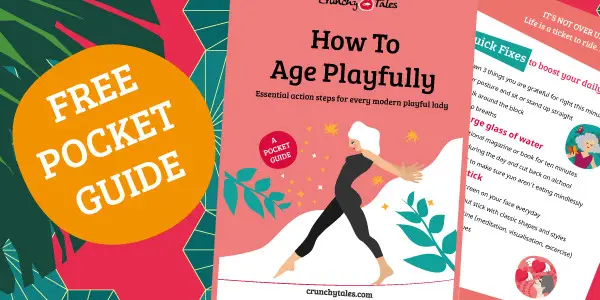The 3 Types Of Ageism And The New Yorker’s Explicit Slap In Our Mature Faces
Ageism, although widely recognized as a form of discrimination, is often misunderstood, and overlooked. It impacts individuals across different generations, affecting their self-esteem, opportunities, and overall well-being.
It’s the prejudice that some people flaunt, and others never notice.
There is implicit ageism, which involves unconscious biases against a certain age group. These biases may manifest as assumptions about a person’s abilities or limitations based solely on their age. Implicit ageism can hinder older individuals from accessing employment opportunities or being taken seriously in the workplace.
There is explicit ageism, which can range from age-based derogatory comments to outright exclusion from certain social or professional settings. Age-based bullying or harassment is an example of explicit ageism, and it can affect individuals across all generations.
Lastly, there is systemic ageism or institutional ageism, which occurs when an institution perpetuates ageism through its actions and policies disadvantaging certain age groups while favouring others. Examples include mandatory retirement age or limited access to healthcare for older adults.
Unfortunately, ageism can take place across multiple levels and in different forms, but when it’s perpetrated by the mass media it’s even more pervasive and as devastating as a bomb and can’t be overlooked.
I’m talking about this month’s cover of The New Yorker magazine showing Top US politicians using walkers implying “the irony and absurdity of the advanced-age politicians currently vying for their top offices.”
It’s no wonder such an explicit example of ageism questioning leadership ability as a matter of age and wanting older generations to step down has sparked a big controversial debate on and offline.
Social gerontologist, educator and public speaker, Jeanette Leardi has been amongst those experts shedding light on this issue: “Too many people are wrongfully concluding that age should be a factor when determining a candidate’s fitness to run for or hold office“, she writes on Linkedin. “Competence, not age or physical disability, should be our criterion. The cartoon omits any possibility that what is depicted needs to be criticized. Instead, readers are left assuming that The New Yorker shares the illustrator’s prejudiced view. For the sake of promoting our democracy, please be responsible journalists and do a better job.”
On the same page, visionary leader and organizational strategist Barbara Raynor: “Who thought this cover image was okay? And why?“, she comments on Linkedin, “Imagine if the visual here featured caricatured images of People of Color or Jews or actual people with disabilities–instead of older adults? Well, of course, you’d have to imagine it, because no publication would have the audacity–or the bad taste–to print something like that in 2023″.
Even the youngest elected Delegate for Joe Biden in 2020, Democratic activist Victor Shi, had something to say: “Hey, New Yorker: THIS is seriously your cover?”, he posted to X, formerly Twitter. “Not only is it incredibly ageist but it’s ableist and a slap in the face to every person in America who needs a walker and/ or who has a disability. This is disgusting & vulgar beyond words. Just STOP it already“.
I don’t know if and when ageism will ever stop but I’m sure that it can be as pervasive as a virus. Knowing its variants and only by speaking up and unmasking it every time occurs, we can start a proper vaccination campaign.
Like this post? Support Us or Sign up to our newsletter to get more articles like this delivered straight to your inbox!





This Post Has 0 Comments